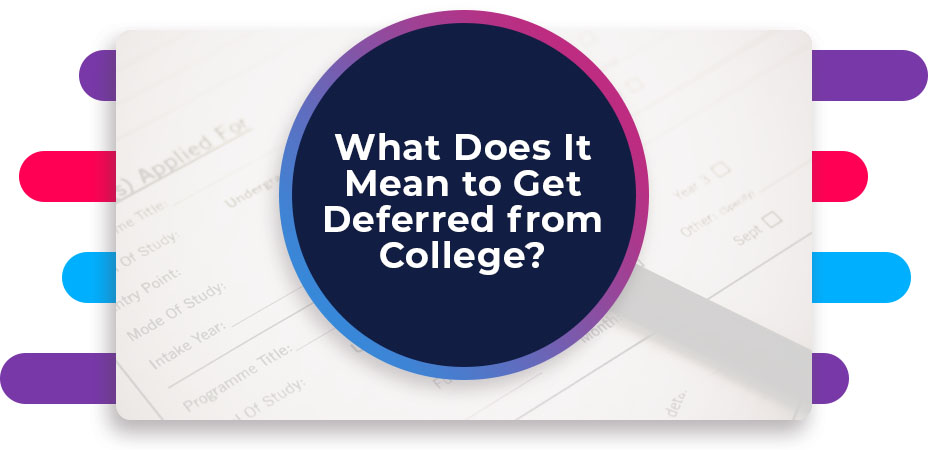“Should I go to grad school?”
You’re not the first undergraduate student to ask this question, and you certainly won’t be the last. After all, many students want the increased recognition, credibility, and opportunities for career growth that often come with earning a graduate degree.
Related: What Is a Graduate Degree?
However, going to grad school is a major decision that shouldn’t be taken lightly. Getting an advanced degree requires a unique kind of commitment, perseverance, and enthusiasm. If you don’t have those qualities in spades, grad school will likely be a miserable experience.
So, should you go to grad school? To help you make the right decision, here are six questions to ask yourself.
1. Why do I want to attend grad school?
Whether it’s in a grad school interview or a letter of motivation, someone will eventually ask you this question. Now is a good time to reflect on why you want to go to grad school in the first place.
The truth is, not every student has a good reason for going to grad school. For example, some students may want to get an advanced degree because they come from a family of academics. Others may decide to apply for grad school only because their favorite undergraduate professor told them to pursue a particular MA program.
To be fair, those aren’t necessarily bad reasons for wanting to go to grad school. But chances are, you’ll be much happier and more motivated in grad school if the decision isn’t influenced by other people.
2. Do I know what I want to study?
If the answer to this question is no, you should rethink your decision to pursue a graduate degree. Put simply, grad school is NOT a place for career exploration.
As an undergrad, you had the opportunity to take a broad range of courses within your major. You could also take electives to enrich your education and learn cool things outside of your major, like scuba diving or Tai Chi.

Grad school, on the other hand, is where you go after you take a class and find that one topic that ignites a spark inside of you. Do you feel the desire to dive deeper into that topic? Would you be OK with dedicating the next two years of your life to this one topic? If so, grad school is a great choice.
3. Is grad school the only way to achieve my career goals?
There are many job titles that require an advanced degree to work in the field. For example, you can’t become a history professor or a psychologist without earning a doctoral or master’s degree.
If your dream job requires a graduate degree, then it makes sense to go to grad school. However, you should still do your research and look at the data. You can use the Occupational Outlook Handbook to look up wage data and get a sense of the job outlook in your field of study.
4. How will I pay for grad school?
Spoiler alert: Grad school can be pretty expensive. Although the cost of a graduate degree can vary by school and the type of graduate degree, some estimates have said that the cost ranges anywhere from $30,000 to $100,000 for a graduate program.
Fortunately, there are a few ways to finance your graduate studies, including the following:
- Employer-offered tuition reimbursement
- Fellowships and graduate assistantships
- Tuition waivers
- Student loans
Don’t forget: You can always apply for college scholarships as a grad school student. Scholarships are free money, so be sure to start researching scholarships as soon as possible.
5. Are my grades good enough to get into grad school?
Generally, most graduate programs prefer applicants who have a 3.0 GPA or higher. So, if you have less-than-stellar grades, getting into grad school may be tricky.
Related: What Do Colleges Look for?
Tricky, yes — but not impossible. Although many graduate programs weigh GPA heavily, others are more interested to know how you did in courses that are related to the grad school program. Graduate school admissions may also be willing to overlook a lower GPA if you present a high score on the GRE Test, a compelling statement of purpose, and strong letters of recommendation.
6. Am I ready to apply to grad school?
Finally, ask yourself if it’s the right time to apply for grad school. Contrary to popular belief, you don’t need to apply to grad school immediately after undergrad.
In fact, it might be better for you to wait a year or two. Although some undergrads prefer to keep their momentum, others are better off getting experience and much-needed insight in their field.
Once you figure out the right time to apply for grad school, start working on your application early. The earlier you get started on your application, the better it will be — and the higher your chances of getting accepted.

‘Should I Go to Grad School?’ It Depends
Grad school can maximize your career potential and give you the unique opportunity to explore your passions and interests on a deeper level. It will also test your inner strength and make you ask yourself, “Why am I putting myself through this?” many, many times. But if you’ve thought things through and believe that you are ready, then we say go for it!
Image Credits
Source: Denise Lett/Shutterstock
Source: f11photo/Shutterstock
Source: Vladimir Borovic/Shutterstock







